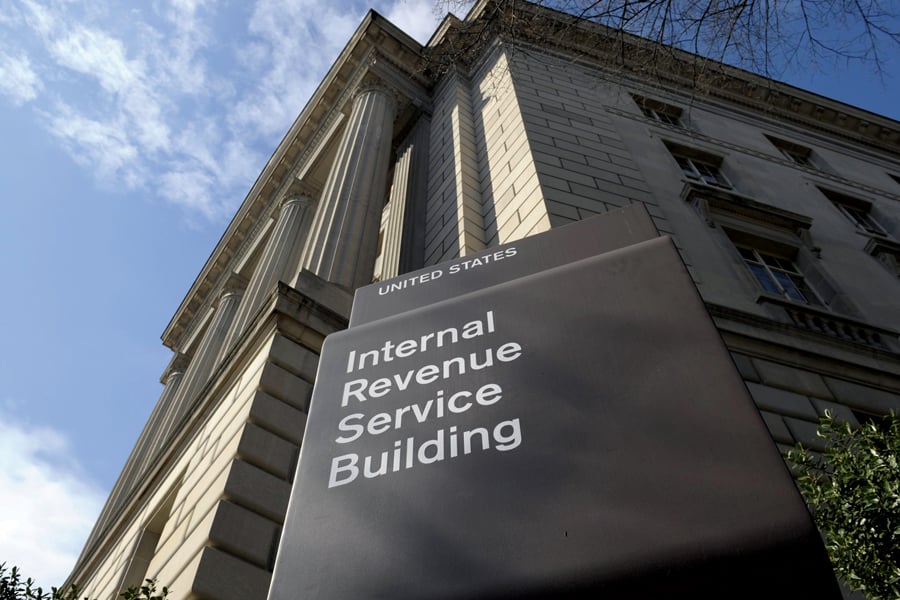For Americans who couldn't figure out how to pay their taxes in April after Republicans overhauled the tax code, there is a new day of dread for accountants: Oct. 15.
That's the filing deadline for individuals and corporations that asked the Internal Revenue Service for a six-month extension to submit their tax documents. Accountants say they've seen a surge in clients needing extra time to finish filings for their 2018 income, the first year subject to new rates and regulations following
the 2017 tax law.
About 15 million individual taxpayers filed for an extension this year, according to the IRS, compared with about 10 million people in previous years.
The new law included several provisions that made it more complicated and time-consuming to file tax returns, and in some cases more difficult to claim valuable tax breaks.
A change in how the IRS calculates and taxes corporate offshore income has been a challenge for tax preparers, as has a new 20% deduction for
pass-through businesses that meet a long list of requirements, accountants said.
Ed Reitmeyer, the Mid-Atlantic regional partner-in-charge at accounting firm Marcum, said he emailed his staff in late July and September to warn that their workload would increase by about 20% in what is already a relatively busy season to meet the Oct. 15 deadline.
"There is some significant overtime," he said.
Accountants have a new problem this year because they don't know how to compute key portions of the code. The IRS still hasn't written implementing regulations for some provisions, and some mistakes that Congress wrote into the law haven't yet been corrected.
"It's as or more complex as it was before," said Mathew Talcoff, a partner at accounting firm RSM. "We thought we were simplifying things."
Mistakes abound
One key error in the law — a drafting mistake that means restaurants and retailers won't be able to deduct the cost of renovating their stores immediately — has yet to be revised nearly two years after President Donald J. Trump signed the bill into law. The Treasury Department says it can't fix the problem through regulations, and Congress has been slow to fix the tax law because of political disputes.
Mr. Talcoff, who works with many clients in the food and beverage industry, said his clients were holding off filing their returns hoping that Congress would fix the error so they could claim the tax break. Now they'll have to submit the tax documents without the write-off, hope Congress fixes it soon, and file an amended return when that time comes, he said.
[Recommended video: Retirement advisers can boost business by focusing on participants in these ways]
Taxpayers are also waiting for Congress to act on a series of expired tax breaks that affect groups like homeowners, railroads and renewable energy companies. They expired at the end of 2017, but many taxpayers expect Congress to renew them as it has in previous years.
It's not yet clear if lawmakers will extend those tax breaks — this year or ever. If Congress does renew them, taxpayers would have to decide later if it's worth the time and effort to pay an accountant to file an updated tax return.
It's also a challenge for taxpayers to claim a new 2018 tax break for companies that make products in the U.S. and export them abroad, receiving what is known as foreign-derived intangible income, or FDII. The IRS has only issued proposed regulations on the tax break and the rules are difficult to follow, said Stan Barsky, an accountant at EisnerAmper.
Deadline drama
The IRS was still writing regulations as recently as a few weeks ago, which means that understanding the law is a moving target, Mr. Barsky said. That led the U.S. Chamber of Commerce to ask the IRS in September to waive penalties for taxpayers who file late and allow them to submit more information on amended returns after Oct. 15.
Because of the tax law adjustments, "copious compliance software changes have been necessary to facilitate these filings," the chamber's letter said. "Unfortunately, compliance software providers have been unable to provide timely software updates due to the sheer volume of changes coupled with the continuing stream of guidance."
The IRS hasn't yet granted any relief to corporate filers, though it does routinely give additional time to individuals and businesses affected by
natural disasters. This year, taxpayers in Texas counties hit by Tropical Storm Imelda have until the end of January to file.
Accountants are rushing to meet the Oct. 15 deadline even if they know they'll need to file an updated tax return later. The penalties for missing the deadline can be severe, ranging from fines to the IRS seizing financial accounts and homes to cover unpaid taxes.
It's not all bad news for accountants, however. The complicated rules and influx of clients filing for extensions mean that there's also been a surge in billable hours.
"We're getting the job done," said Don Williamson, executive director at American University's Kogod Tax Center. "We have the fees to reflect that."







